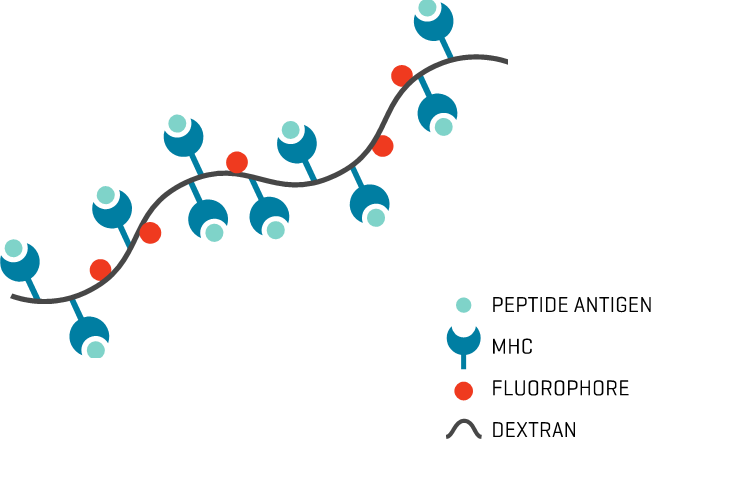Get in Touch with our Immune Monitoring Experts
Use sensitive detection tools to understand MAGE-A4:
- Easy sourcing: MHC Dextramer® reagents cover a range of HLA allotypes and a variety of specificities targeting different MAGE-A4 antigens are available in our webshop.
- Exceptional avidity: Thanks to a flexible backbone, Dextramer® reagents bind even T cells with low affinity, which may go undetected with tetramers.
- Reliable results: High quality Dextramer® reagents ensure reliable experimental outcomes.
- High signal: The multiple fluorophores per Dextramer® backbone enhance staining intensity for a clear signal and minimal background noise.
- GMP quality: MHC Dextramer® reagents are available in GMP quality, facilitating the translation of research findings into clinical reality.

MAGE-A4 (melanoma-associated antigen 4) is restricted in healthy tissue but expressed in solid cancers like synovial sarcoma, myxoid/round cell liposarcoma, NSCLC, ovarian, urethral, gastroesophageal, and other cancers. With multi-cancer expression, MAGE-A4 has great potential as a therapeutic target for vaccines and T-cell therapies, but examining its suitability for different indications requires highly sensitive and specific detection of T cell responses.
MHC Dextramer® reagents are already being used for this work. One autologous T-cell therapy targeting MAGE-A4 that is currently in clinical trials was immunophenotyped and monitored using MHC Dextramer® reagents. The results systematically characterized the infused cells and generated profiles of their persistence after administration, attesting to a highly specific detection of engineered TCR-T cells.
 See MHC Dextramer® reagents in action
See MHC Dextramer® reagents in action
"A thorough analysis of antigen-specific responses in T cells is critical to demonstrate efficacy of a T cell-based therapy and to investigate possible side effects."
- Thomas Holberg Blicher, PhD. Senior Research Scientist, Immudex
"The FDA recommended that we use a GMP-grade multimer for the purposes of lot-release testing our TCR-T based therapy."
- Scientist, Pharmaceutical Company

